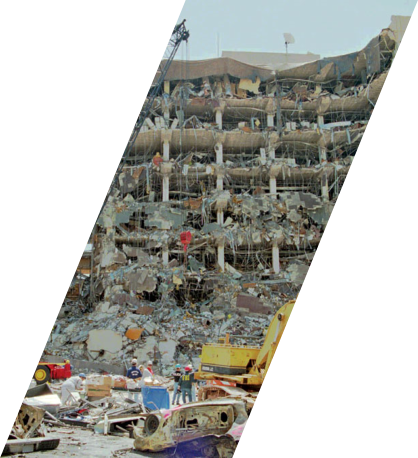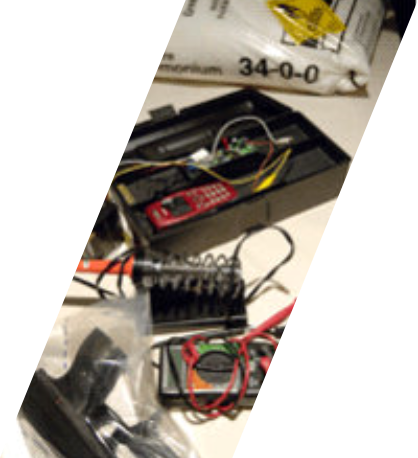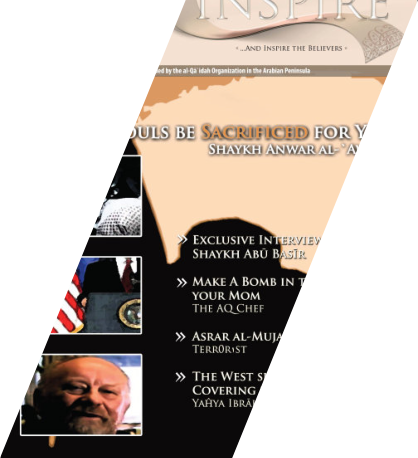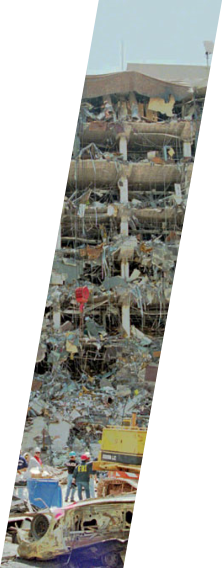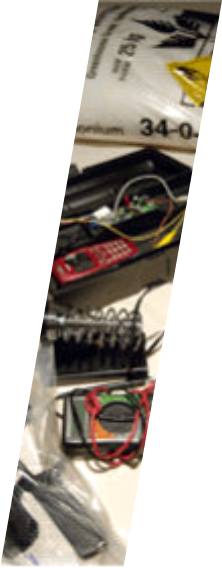‘Time and property mean nothing, lives mean everything’



Realistically there are two threat modes that must be addressed to effectively prepare for current or future security events. These are the “Immediate”
and “Deliberate” threat modes. The “Immediate” threat represents day-to-day security challenges that effective security planning will, in the main, protect
against. However the “Deliberate” threat mode represents the most serious of challenges that involves an organized, focused and thoroughly planned
attack. This latter threat will be for financial, political or special interest reasoning. The Global Impact 4 Point Security Initiative (4-PSI) addresses both
threat modes and our conclusions will prepare management to effectively counter both.
The absolute key in dealing with the insidious threat of terrorism, or anything likely under the “New Normal” situation, is the engagement of those most
directly involved on a day-to-day basis. All too often security is seen as some else’s problem but the facts are that contract security personnel only see
the tip off the iceberg. It is also a fact that security personnel have an unfortunately high turn over rate while many employees of the building have been
there for many years. It is the buy in of those senior employees that Global Impact will seek out and turn into security ears and eyes.
Given the “New Normal” environment it is important to set the standards of protection directly against the known threats. We are faced with the question
of “are we effectively prepared to face the worse case scenarios” or what Global Impact refers to as a potentially “ruinous event”. Events such as acts of
terrorism, serious vandalism, or delivery of toxic substances into the HVAC system, the facility must be “reasonably” prepared to effectively react to
these types events.
If all of the known threats are not considered and such an event occurs, then there may loss of life and financial devastation. It may also result in highly
public inquiries, the results of which could be damaging to the organisation. Setting an acceptable security benchmark is the hallmark of an organisation
showing due diligence regarding the proper protection and safety of all of its people and assets.
Vehicle bombs and bombs by proxy are difficult to deal with. There
are few defences against this type of attack. Loss of life, property,
and company/ client information can be crippling to an
organisation . There are measures to detect, deter, and restrict
damage should you be targeted with this type of explosive device.
The lone wolf, organized crime, terrorist organizations and activist
groups are all capable of targeting your building or your facility.
The bomb is the weapon of choice for cowards, laymen and
sophisticated organizations. You cannot combat them by denying
that they are a threat to you.
Mail bombs are personal and chilling, they can be directed
towards the intended target with great accuracy. There are
many tell tale signs that a package or letter may contain
explosives, incendiaries or biohazards. Learn how to prepare
your mail room and mail handling staff to be your first line of
defence.
Suicide bombers have many operational advantages. Their
intent can be used against them to defend your building. With
the use of Behavioural Pattern Diagnostic and the fact that pre-
attack surveillance is carried out before an attack, your frontline
and security staff can be taught to recognize the warning signs.
Learn what they are and how to counter against this type of
attack.
Note: We believe unreservedly that defending against the modern day adversary in the form of a Homegrown
Extremist, a Lone Wolf or a more traditional terror group is extremely difficult. What is not unreasonable,
however, is to be totally prepared, equipped and poised to meet any such attacks if or when they occur.
During the time between an attack occurring and first responders arrival on the scene, it is your frontline staff
that will make the difference, in some cases, of people living or dying. These staff members must be supported
in such a way that they know what to do, when to do it and they must have the equipment training, and support
to ensure casualties are kept to a minimum post-attack.



HOMEGROWN VIOLENT EXTREMIST (HVE) &
LONE WOLF ASSAILANTS
The shooting at Fort Hood, Texas. the massacre
committed by Anders Breivik in Norway, and the
callous murder of four people including three
children in Toulouse, France, all can be attributed to
a lone operative. The threat from grassroots actors
operating alone or in small groups is much higher
than that from traditional terrorist groups. Stratfor, an
independent Global Intelligence supplier stated that
'There is a far greater likelihood of a successful
attack being conducted in the West by a lone-wolf
attacker or small cell than by a member of an
established terrorist groups.'
Lone wolves do pose a threat, however they follow
the planning process utilized by more traditional
assailants, but they must do it alone and are
vulnerable to detection. A good security awareness
culture, realistic security policy and procedures, and
proper protective security measures such as CCTV
systems and lighting can help protect your people
and your assets.
THE REALITY
Nothing is 100%, there is no one counter-measure or procedure that can stop a terrorist or criminal from attacking your building. The reality is, should terrorists
plan a deliberate attack against your building or facility, the odds are pretty high that they will succeed should they reach the attack phase. Successful
attacks still happen to hard targeted buildings.
Screaming about terrorism has the overall effect of building everyone involved into a "Deny & Repress" mind set. Overstating the threat is almost as bad as
ignoring it. Therefore a realistic rationale for security planning is a vital part of Risk Reduction and Incident Management Planning. To effectively structure a
security plan the threat must be understood so actual attacks can be countered.
‘Time and property mean nothing, lives mean everything’



Realistically there are two threat modes that must be addressed
to effectively prepare for current or future security events. These
are the “Immediate” and “Deliberate” threat modes. The
“Immediate” threat represents day-to-day security challenges that
effective security planning will, in the main, protect against.
However the “Deliberate” threat mode represents the most
serious of challenges that involves an organized, focused and
thoroughly planned attack. This latter threat will be for financial,
political or special interest reasoning. The Global Impact 4 Point
Security Initiative (4-PSI) addresses both threat modes and our
conclusions will prepare management to effectively counter both.
The absolute key in dealing with the insidious threat of terrorism,
or anything likely under the “New Normal” situation, is the
engagement of those most directly involved on a day-to-day
basis. All too often security is seen as some else’s problem but
the facts are that contract security personnel only see the tip off
the iceberg. It is also a fact that security personnel have an
unfortunately high turn over rate while many employees of the
building have been there for many years. It is the buy in of those
senior employees that Global Impact will seek out and turn into
security ears and eyes.
Given the “New Normal” environment it is important to set the
standards of protection directly against the known threats. We are
faced with the question of “are we effectively prepared to face the
worse case scenarios” or what Global Impact refers to as a
potentially “ruinous event”. Events such as acts of terrorism,
serious vandalism, or delivery of toxic substances into the HVAC
system, the facility must be “reasonably” prepared to effectively
react to these types events.
If all of the known threats are not considered and such an event
occurs, then there may loss of life and financial devastation. It
may also result in highly public inquiries, the results of which
could be damaging to the organisation. Setting an acceptable
security benchmark is the hallmark of an organisation showing
due diligence regarding the proper protection and safety of all of
its people and assets.
Vehicle bombs and bombs by proxy are difficult to deal with. There are few
defences against this type of attack. Loss of life, property, and company/
client information can be crippling to an organisation . There are measures to
detect, deter, and restrict damage should you be targeted with this type of
explosive device.
The lone wolf, organized crime, terrorist organizations and activist groups
are all capable of targeting your building or your facility. The bomb is the
weapon of choice for cowards, laymen and sophisticated organizations. You
cannot combat them by denying that they are a threat to you.
Mail bombs are personal and chilling, they can be directed towards the
intended target with great accuracy. There are many tell tale signs that a
package or letter may contain explosives, incendiaries or biohazards.
Learn how to prepare your mail room and mail handling staff to be your
first line of defence.
Suicide bombers have many operational advantages. Their intent can be
used against them to defend your building. With the use of Behavioural
Pattern Diagnostic and the fact that pre-attack surveillance is carried out
before an attack, your frontline and security staff can be taught to
recognize the warning signs. Learn what they are and how to counter
against this type of attack.


HOMEGROWN VIOLENT EXTREMIST (HVE) & LONE WOLF
ASSAILANTS
The shooting at Fort Hood, Texas. the massacre committed by
Anders Breivik in Norway, and the callous murder of four people
including three children in Toulouse, France, all can be attributed
to a lone operative. The threat from grassroots actors operating
alone or in small groups is much higher than that from traditional
terrorist groups. Stratfor, an independent Global Intelligence
supplier stated that 'There is a far greater likelihood of a
successful attack being conducted in the West by a lone-wolf
attacker or small cell than by a member of an established terrorist
groups.'
Lone wolves do pose a threat, however they follow the planning
process utilized by more traditional assailants, but they must do it
alone and are vulnerable to detection. A good security awareness
culture, realistic security policy and procedures, and proper
protective security measures such as CCTV systems and lighting
can help protect your people and your assets.
THE REALITY
Nothing is 100%, there is no one counter-measure or procedure
that can stop a terrorist or criminal from attacking your building.
The reality is, should terrorists plan a deliberate attack against
your building or facility, the odds are pretty high that they will
succeed should they reach the attack phase. Successful attacks
still happen to hard targeted buildings.
Screaming about terrorism has the overall effect of building
everyone involved into a "Deny & Repress" mind set. Overstating
the threat is almost as bad as ignoring it. Therefore a realistic
rationale for security planning is a vital part of Risk Reduction and
Incident Management Planning. To effectively structure a security
plan the threat must be understood so actual attacks can be
countered.
Note: We believe unreservedly that defending against the
modern day adversary in the form of a Homegrown
Extremist, a Lone Wolf or a more traditional terror group is
extremely difficult. What is not unreasonable, however, is to
be totally prepared, equipped and poised to meet any such
attacks if or when they occur.
During the time between an attack occurring and first
responders arrival on the scene, it is your frontline staff that
will make the difference, in some cases, of people living or
dying. These staff members must be supported in such a
way that they know what to do, when to do it and they must
have the equipment training, and support to ensure
casualties are kept to a minimum post-attack.
‘Time and property mean nothing, lives mean everything’



Realistically there are two threat modes that must be addressed to effectively prepare for current or future security events. These are the “Immediate” and “Deliberate” threat modes. The “Immediate”
threat represents day-to-day security challenges that effective security planning will, in the main, protect against. However the “Deliberate” threat mode represents the most serious of challenges that
involves an organized, focused and thoroughly planned attack. This latter threat will be for financial, political or special interest reasoning. The Global Impact 4 Point Security Initiative (4-PSI)
addresses both threat modes and our conclusions will prepare management to effectively counter both.
The absolute key in dealing with the insidious threat of terrorism, or anything likely under the “New Normal” situation, is the engagement of those most directly involved on a day-to-day basis. All too
often security is seen as some else’s problem but the facts are that contract security personnel only see the tip off the iceberg. It is also a fact that security personnel have an unfortunately high turn
over rate while many employees of the building have been there for many years. It is the buy in of those senior employees that Global Impact will seek out and turn into security ears and eyes.
Given the “New Normal” environment it is important to set the standards of protection directly against the known threats. We are faced with the question of “are we effectively prepared to face the
worse case scenarios” or what Global Impact refers to as a potentially “ruinous event”. Events such as acts of terrorism, serious vandalism, or delivery of toxic substances into the HVAC system, the
facility must be “reasonably” prepared to effectively react to these types events.
If all of the known threats are not considered and such an event occurs, then there may loss of life and financial devastation. It may also result in highly public inquiries, the results of which could be
damaging to the organisation. Setting an acceptable security benchmark is the hallmark of an organisation showing due diligence regarding the proper protection and safety of all of its people and
assets.
Vehicle bombs and bombs by proxy are difficult to deal with. There are few
defences against this type of attack. Loss of life, property, and company/
client information can be crippling to an organisation . There are measures to
detect, deter, and restrict damage should you be targeted with this type of
explosive device.
The lone wolf, organized crime, terrorist organizations and activist groups
are all capable of targeting your building or your facility. The bomb is the
weapon of choice for cowards, laymen and sophisticated organizations. You
cannot combat them by denying that they are a threat to you.
Mail bombs are personal and chilling, they can be directed towards the
intended target with great accuracy. There are many tell tale signs that a
package or letter may contain explosives, incendiaries or biohazards.
Learn how to prepare your mail room and mail handling staff to be your
first line of defence.
Suicide bombers have many operational advantages. Their intent can be
used against them to defend your building. With the use of Behavioural
Pattern Diagnostic and the fact that pre-attack surveillance is carried out
before an attack, your frontline and security staff can be taught to
recognize the warning signs. Learn what they are and how to counter
against this type of attack.
HOMEGROWN VIOLENT EXTREMIST (HVE) & LONE WOLF ASSAILANTS
The shooting at Fort Hood, Texas. the massacre committed by Anders Breivik in
Norway, and the callous murder of four people including three children in Toulouse,
France, all can be attributed to a lone operative. The threat from grassroots actors
operating alone or in small groups is much higher than that from traditional terrorist
groups. Stratfor, an independent Global Intelligence supplier stated that 'There is a far
greater likelihood of a successful attack being conducted in the West by a lone-wolf
attacker or small cell than by a member of an established terrorist groups.'
Lone wolves do pose a threat, however they follow the planning process utilized by
more traditional assailants, but they must do it alone and are vulnerable to detection.
A good security awareness culture, realistic security policy and procedures, and
proper protective security measures such as CCTV systems and lighting can help
protect your people and your assets.
THE REALITY
Nothing is 100%, there is no one counter-measure or procedure that can stop a
terrorist or criminal from attacking your building. The reality is, should terrorists plan
a deliberate attack against your building or facility, the odds are pretty high that they
will succeed should they reach the attack phase. Successful attacks still happen to
hard targeted buildings.
Screaming about terrorism has the overall effect of building everyone involved into a
"Deny & Repress" mind set. Overstating the threat is almost as bad as ignoring it.
Therefore a realistic rationale for security planning is a vital part of Risk Reduction
and Incident Management Planning. To effectively structure a security plan the threat
must be understood so actual attacks can be countered.



Note: We believe unreservedly that defending against the modern day adversary in the form of a Homegrown Extremist, a
Lone Wolf or a more traditional terror group is extremely difficult. What is not unreasonable, however, is to be totally
prepared, equipped and poised to meet any such attacks if or when they occur.
During the time between an attack occurring and first responders arrival on the scene, it is your frontline staff that will make
the difference, in some cases, of people living or dying. These staff members must be supported in such a way that they
know what to do, when to do it and they must have the equipment training, and support to ensure casualties are kept to a
minimum post-attack.
